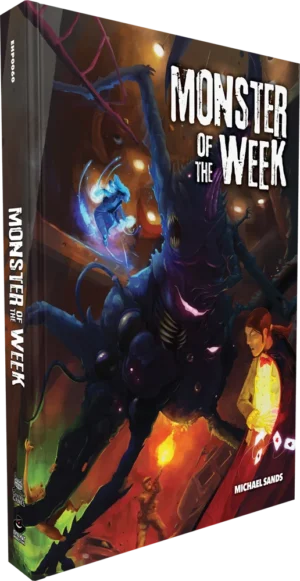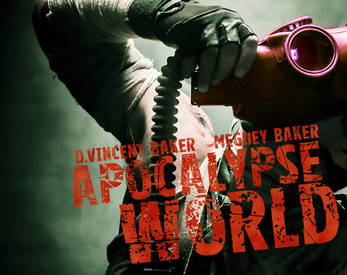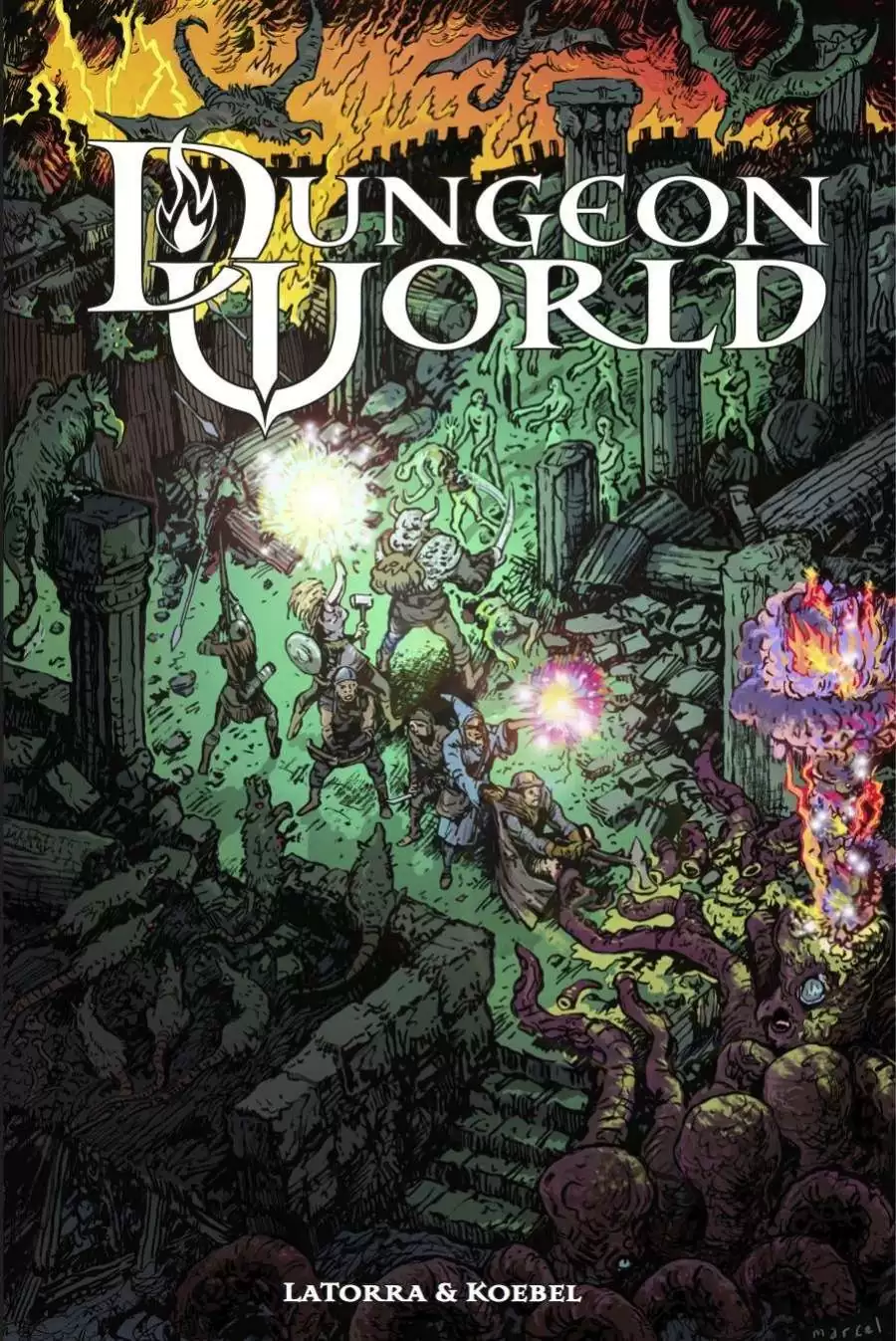Monster of the Week Horror; Supernatural; Dark; Powered by the Apocalypse (PbtA); Narrative-Driven; Investigation; Team-Based
Monster of the Week (MotW) is a tabletop roleplaying game (TTRPG) that blends action-horror with narrative-driven gameplay. Inspired by TV shows like Buffy the Vampire Slayer, Supernatural, and The X-Files, it places players in the roles of monster hunters tasked with investigating and eliminating supernatural threats. Powered by the Apocalypse (PbtA) mechanics, MotW emphasizes collaborative storytelling and character-driven action, making it accessible to both newcomers and experienced RPG players. The game distinguishes itself through its focus on mystery creation, diverse hunter playbooks, and a flexible rules system that prioritizes narrative over rigid mechanics.
Theme and Setting
Monster of the Week is firmly rooted in the action-horror genre, drawing heavy inspiration from episodic television series where protagonists confront a new monster or supernatural threat each week. The setting is typically contemporary, often described as urban fantasy, where the mundane world intersects with the hidden and often dangerous realm of the supernatural. Players take on the roles of monster hunters who are aware of the existence of these threats, contrasting with the general public's ignorance. The game's design encourages campaigns that emulate the episodic nature of its inspirations, focusing on solving individual mysteries while potentially building towards larger, overarching narratives.
Core Mechanics and Rules
MotW utilizes the Powered by the Apocalypse (PbtA) engine, which prioritizes narrative and player agency over complex rules. The core mechanic involves rolling two six-sided dice (2d6), adding a relevant character rating, and interpreting the result: 10+ is a complete success, 7-9 is a success with complications, and 6 or less results in failure and often introduces new challenges. Players choose from various 'playbooks' that define their character archetype and provide unique moves and abilities. These moves dictate how players interact with the game world, triggering dice rolls when the outcome is uncertain or dramatic. The Keeper (GM) doesn't typically roll dice, instead reacting to the players' actions and driving the narrative forward. Character ratings, such as Cool, Tough, Charm, Sharp, and Weird, influence the success of actions. Luck points can be spent to alter outcomes or avoid harm, adding a layer of strategic decision-making.
What Makes it Unique
Several elements contribute to MotW's unique appeal within the TTRPG landscape. Its mystery-focused design provides structured tools for creating engaging, self-contained stories, making it easier for Keepers to prepare and run sessions. The diverse range of playbooks allows players to explore various hunter archetypes, each with distinct abilities and narrative hooks. The game's emphasis on collaborative storytelling and player agency empowers players to shape the direction of the narrative. Unlike many other RPG's MotW encourages players to do something instead of just saying they do, enriching the roleplaying experience. The PbtA mechanics further streamline gameplay, focusing on dramatic outcomes and character-driven action rather than intricate rulesets. The game has elements that are awful, but those very elements can be reasons why one might find it appealing.
Target Audience and Player Experience
MotW is well-suited for players who enjoy narrative-driven and character-focused roleplaying experiences. Its streamlined rules and emphasis on collaborative storytelling make it accessible to new TTRPG players, while its flexible system and mystery-solving elements appeal to experienced gamers. The game fosters a team-based environment, where players must work together to investigate mysteries, combat monsters, and protect each other. The player experience is generally described as engaging, exciting, and collaborative, with a strong emphasis on player agency and creative problem-solving. The game captures the tone and feel of action-horror media, delivering a thrilling and immersive experience for players who enjoy supernatural investigation and monster hunting.



